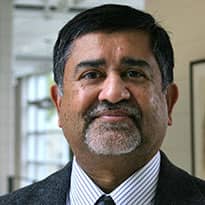It is in this context that the historic win of the Bharatiya Janata Party (translated as "Indian People's Party") should be studied and understood. Sanjaya Baru, no sympathizer of the BJP or Mr. Narendra Modi, sees this win as the "birth of the second republic." Mr. Baru, media adviser to the former Prime Minister, Dr. Manmohan Singh, should know, for he had both a ringside view of the Delhi "durbar" and was a confidant of the "accidental" prime minister over the past decade.
Mr. Modi took the oath of office on May 26, 2014. It has been two months since he assumed charge of a teetering, chaotic nation. A lot is expected of him by his supporters, and a lot has already been thrown at him by his detractors. India has been reduced over the past seven decades into an almost ungovernable amalgam of local and regional parties, fiefdoms, and interests ridden with corruption and railroaded by criminals. And at this time, the affairs of the world are also seemingly coming apart. How Mr. Modi and the BJP will navigate these treacherous waters we don't know. The old interests, entrenched in places of power and privilege, will continue to target him and seek to destabilize his government. But, this writer, having met him and interviewed him a decade ago, believes that he is a man of conviction and steadfastness. If he gets to be Prime Minister for two terms (ten years), India may yet turn the corner and emerge as a beacon of wisdom and strength to a weary world. The slogan he has coined—"Sabka saath, sabka vikas" ("collective efforts, inclusive growth")—must get converted into action.





